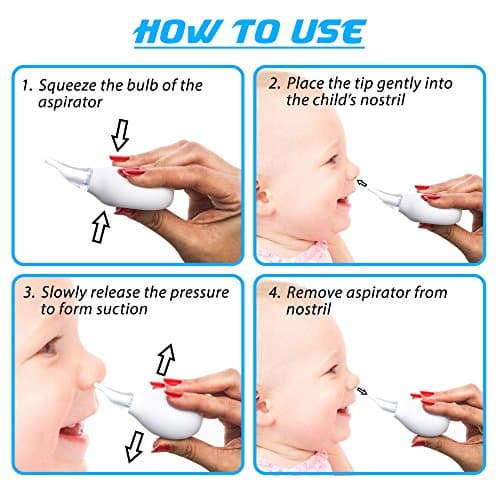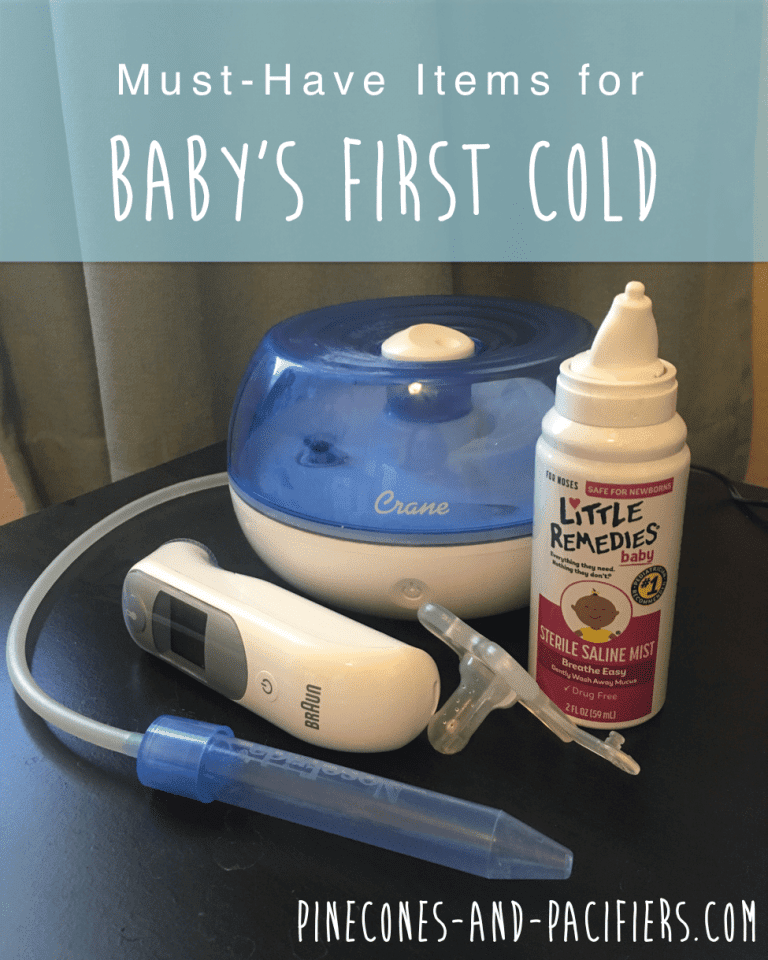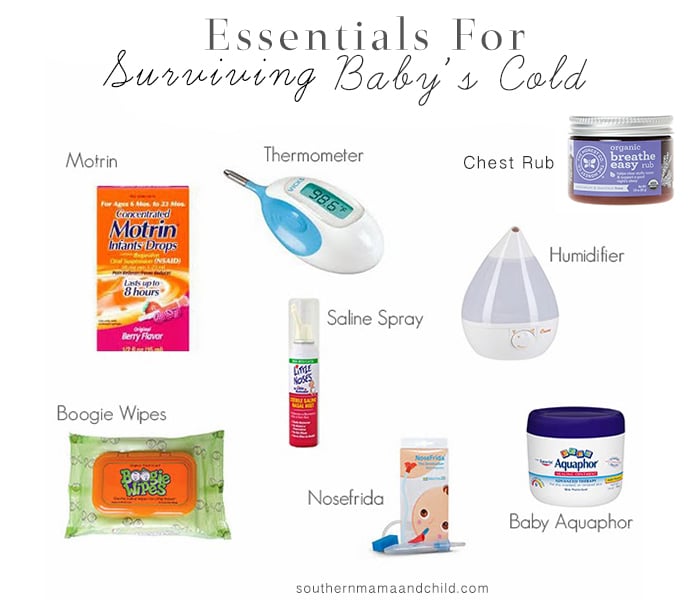When Your Baby Has A Cold You’ll Do Anything To Help Them Feel Better These Home Remedies For Cough And Congestion Can Get Them On The Road To Recovery
Of all the milestones your baby will encounter in their first year, one of the most heartbreaking is their first cold. Your little one might pant during feedings, snort themselves awake during a nap, or look at you, bewildered, as if to say, “What’s happening to me?”
Most over-the-counter cough and cold medicines are not recommended for children under the age of 6, according to the American Academy of Pediatricsbut you can still make your baby more comfortable when they’re feeling under the weather. Test out these five natural baby cold home remedies, and know when it’s time to visit the pediatrician.
What Are The Symptoms Of A Cold In An Infant
Symptoms of a cold in an infant generally start with a low grade fever and nasal congestion. Infants get all plugged up inside and then two to three days later generally start having a lot of post-nasal drip, increasing a cough and causing a runny nose. If your child has a green or yellow runny nose in the first three to four days of a cold, thats normal and not considered a sinus infection its just that the mucus has been setting in the nose for so long. That generally fades away within seven to 10 days and the fever is usually gone in two to three days.
Why Does Breast Milk Change Colors
You may have seen some viral social media posts depicting color changes in breast milk during times of illness. While these are certainly fascinating, there is no published evidence as of yet showing that these color changes are a direct result of breast milk changing in reaction to an infection from a nursed baby or nursing parent.
That doesnt mean this isnt possible just that theres no research to support it as of now. However, there is evidence that breast milk changes color for other reasons, including in reaction to something a nursing parent ate, a vitamin they took, or other external changes that may affect their milks color.
One example is this case report from 2012 of a nursing mother whose breast milk turned green as a result of a multivitamin she was taking. Breast milk is known to turn a rusty brown at times as a result of something called rusty pipe syndrome, which is where a little blood is found in milk during early breastfeeding, but soon resolves.
Other known causes of breast milk color changes include the fact that milk changes from the yellowish/gold color of colostrum when your baby is first born to the whitish color of mature milk. Even mature milk changes color throughout the day and from feed to feed. The more watery foremilk that comes at the beginning of a feed or when your breasts are very full has a more bluish hue. The fattier hindmilk that comes as your breasts empty usually appears more creamy and yellowish.
Read Also: What To Do For Newborn Chapped Lips
Why Home Remedies For Curing Cold
Yes, it is very troubling to see your little one in pain but parents can try to avoid medicines as far as possible. One does not have to rush to see a doctor for a cough and cold every time. Doctors may prescribe medicines and antibiotics which have long-term effect on the child. Lets look at some home remedies for cold and cough.
Hence, it is advisable to try home remedies which have absolutely no side effects and you can visit a doctor after a couple of days if things dont improve. The Indian kitchen is a mini pharmacy as almost all Indian herbs and condiments can be used to cure a common cold and cough.
Image Source: Parenting Healthy Babies
Here are a few home remedies based on your babys age that can help to get rid of the cold and cough naturally.
Read Also: 7 Best Home Remedies to Treat Low Iron in Kids
Keeping Your Child Comfortable

Don’t Miss: How Long Newborn Baby Sleep
Avoid These Products Altogether
Cough medicine: This is not recommended for babies . According to Health Canada, there is no evidence theyre effective, and they can cause harm when misused or overused. The same goes for natural cough medicines, because natural ingredients can still cause dangerous side effects and allergies. Theres also no evidence that they work, says paediatrician Dina Kulik, founder of KidCrew, a multidisciplinary health clinic in Toronto.
Homeopathic treatments and essential oils: There are many cold remedies on pharmacy and health store shelves labelled as homeopathic, but these, like other natural health products, are not as strictly regulated as pharmaceuticals. There is no convincing evidence that they work, and they may pose a risk, says Kulik. Its better to avoid these altogether. Essential oils are another popular home remedy, but they can be toxic. C.J. Blennerhassett recommends against using them in a babys humidifier or anywhere near a baby because there are no studies to demonstrate their value or safety.
How Can I Treat My Babys Cold
Ukpeh recommends:
- Treat mild fevers with acetaminophen or ibuprofen.
- Encourage the baby to take plenty of fluids and to rest.
- Use a cool mist humidifier to help baby with a stuffy nose, but be sure to wash and dry it thoroughly each day to prevent contamination from bacteria and mould. Giving your baby a warm bath or sitting with her in the bathroom while the shower runs can also help soften the mucus in her nose.
- Raising the crib mattress so that the babys head is higher than his body may also help him sleep more comfortably.
If your baby has a lot of mucus in his nose, it may help to soften it with saline drops, then use a suction bulb to remove it. But Ukpeh cautions that when the baby has soft-tissue swelling in his nose, the suctioning is likely to irritate the tissue and make things worse, so be gentle.
Recommended Reading: What Do You Need For A Newborn Baby
What Can A Parent Do At Home To Help A Child With A Cold
Humidified air is one of the best things you can do. It will help lubricate the nasal sinuses and prevent cough. If your childs uncomfortable, use of Tylenol and Ibuprofen would be appropriate. Use upright positioning for small infants and children, but only while theyre awake, and flat positioning while they sleep. Nasal saline can also help congestion.
Symptoms Of Colds In Newborns
A stuffed or runny nose may be your first clue that your newborn has caught a cold. Their nasal discharge may start out as thin and clear, but turn thicker and yellowish-green in color over several days. This is normal, and doesnt mean your babys cold is getting worse.
Other symptoms include:
- rapid breathing or difficulty breathing
Your baby may also develop a bluish tint to the lips or finger beds. This means your baby isnt getting enough oxygen and should be taken to a hospital immediately.
Read Also: What Is Necessary For Newborn Baby
Warm Bath Or Steam Shower
Run a hot shower, close the door to the bathroom, and let baby breathe in the steam. The warm steam will help loosen and expel hardened or thick mucus. Alternatively, place baby in a warm bath. If your baby has a cold or the flu, add immune-boosting and anti-viral herbs to the water. Try:
- Thyme, an anti-viral that helps expel congestion, especially from the lungs and chest.
- English ivy, studies show this plantan ingredient in some childrens natural cough medicinehelp treat pediatric cough in 96 percent of cases.
- Lavender and chamomile, which are calming and soothing to help baby sleep.
- Epsom salts, which provide magnesium for better muscle function and detox. Studies like this one and this one have shown its an effective muscle relaxer and helps improve breathing.
To make an herb bath, put 1 tablespoon of the dried herb in a tea ball, soak in hot water, and put in bath water. Repeat up to six times per day.
Also Check: Is Infant Formula Safe For Newborns
Warm Liquids And Chicken Soup
Warm, clear liquids can be very soothing and help relieve congestion for babies 6 months and older. Scientists have actually examined the ingredients in chicken soup and concluded that it’s no myth: This old-fashioned remedy may help relieve cold symptoms such as congestion. Broth is a good alternative for babies who are still getting accustomed to solid foods. You can give older babies and toddlers warm water, broth, soup, or chamomile tea. Serve liquids warm, not hot.
Also Check: When To Switch From Newborn To Size 1 Diapers
When To Call The Doctor For Baby Cold Symptoms
For most common colds, there’s no need to visit the pediatrician unless you’re concerned it might be something more serious like the flu or COVID-19. But if your baby is under 3 months old or if it’s your baby’s first cold, it’s a good idea to get in touch with your practitioner, if only to put your mind at ease.
Otherwise, watch for any of these signs that your little one’s illness is getting worse and be sure to call the doctor if your baby:
- Is experiencing her very first cold
- Seems to be especially out of sorts
- Refuses to eat or drink
- Develops a fever of 100.4 degrees Fahrenheit or higher on a rectal thermometer and she’s under 3 months oldTrusted SourceAmerican Academy of PediatricsWhen to Call the Pediatrician: FeverSee All Sources
- Has a fever of over 100.4 F and she’s 3 months or older
- Has a cough that’s getting worse or continues during the day after other symptoms are gone
- Breathes significantly more rapidly than usual
- Has greenish-yellow, foul-smelling nasal discharge from the nose or from coughing
- Has swollen glands in the neck
- Pulls on her ear
- Has symptoms lasting longer than 10 days
If your baby seems to have a continuous cold, a chronically runny nose or very long-lasting or frequent colds , talk to the doctor about whether allergies might be responsible .
When Might My Child Need Antibiotics

Most coughs are caused by cold viruses, so antibiotics will not help your child get better any faster. Antibiotics are only used to treat bacterial infections.
A doctor may prescribe antibiotics when a cough is caused by a bacterial infection in the throat or chest, such as tonsillitis or pneumonia.
Don’t Miss: Is It Normal For Newborns To Have Dry Skin
What Are The Benefits Of Nursing When Your Baby Is Sick
Breastfeeding has been found to prevent babies from getting sick in the first place, and protects against common childhood ailments such as ear infections, diarrhea and vomiting, pneumonia, and urinary tract infections. Even when your baby does get sick, breastfeeding has many benefits for your baby:
Questions For Your Doctor Or Healthcare Professional
Its understandable that you might have concerns about nursing while your baby is sick. Here are some questions you might want to ask a healthcare professional to put your mind at ease:
- Do I need to change the frequency of nursing while my baby is sick?
- What should I do if my baby is too tired or congested to nurse?
- What are some signs that I should be taking my baby to the pediatrician?
- Is it OK if my baby seems to want to nurse all the time while they are sick?
Read Also: How To Treat Newborn Diaper Rash
Trouble Breathing: How To Tell
Trouble breathing is a reason to see a doctor right away. Respiratory distress is the medical name for trouble breathing. Here are symptoms to worry about:
- Struggling for each breath or shortness of breath
- Tight breathing so that your child can barely cry
- Ribs are pulling in with each breath
- Breathing has become noisy
- Breathing is much faster than normal
- Lips or face turn a blue color
Are Baby Vitamins A Good Choice
While both formula and breast milk have the necessary nutrients for the newborns first months, some infants might benefit from baby vitamins in the first year of their life. Whats more, baby vitamins are actually recommended for infants who are exclusively breastfed or have some other health issues. Some of the most common supplements for babies include Vitamins K and D, Iron, as well asbaby probiotics.
Keep in mind that not all supplements are created equally and some may not be safe for your baby. This is why its important to discuss baby vitamins with the doctor before purchasing some on your own.
Generally speaking, a common cold is nothing too worrisome. However, if your baby is still younger than three months but has a fever of 100.4 or higher, its crucial to contact your doctor as soon as possible. And if your baby is older than three months, a fever that lasts longer than three days also warrant a visit to the doctors office. Pay attention to other more serious symptoms as well, such as breathing difficulties and wheezing, as this might point to pneumonia or a virus. Dont hesitate to put trust in the renowned Worldwide Pediatrics Group and enjoy medical service from the bestpediatrician in Florida. After all, finding the right pediatrician can be challenging but when you do, dealing with your childs potential health issues wont have to be as stressful.
Don’t Miss: When Do You Stop Swaddling Newborns
Baby Cold Medicine: Never Give Your Baby These Cold Medicines
‘Tis the season for the sniffles! And your little one will likely suffer from a cold sometime in her first winter. While it can be tempting to break out the big guns when your little one is suffering, its important to remember that babies cant handle the same cold remedies that work for us grown-ups. Many adults dont think twice about treating runny noses and hacking coughs with over-the-counter medicine, but we have to be much more careful with babies.
How To Prevent The Common Cold
Colds are caused by viruses that are spread when an infected person sneezes, coughs or touches their nose. Another person then breathes in the virus through the air or touches the infected persons hand or a contaminated surface and catches the virus.
Here are a few tips to help prevent your baby from getting a cold:
- Keep your newborn away from sick people: If your baby is under three months old, avoid having sick visitors or going to public places where people might be sick.
- Teach your older kids to sneeze or cough into a tissue: If they do it into their hands, they can spread the virus. Youll want to have tissues readily available in all common rooms in the house during cold season. After blowing their nose, your kids should then throw the tissue out right away.
- Wash your hands: Wash your hands frequently with soap and water or use an organic alcohol-based hand sanitizer. Teach your children to do the same, especially before touching the baby.
Don’t Miss: Do Newborns Sleep All Day
What Causes The Common Cold
The general cause of a common cold is a virus. A few common viruses are rhinovirus, enterovirus, respiratory syncytial virus . A lot of parents have misconceptions of RSV and believe that if their child gets it theyre going to end up in the hospital, quite sick or even develop asthma. But, thats not quite true. Since 96 percent of all children develop RSV at least once before theyre 2, it can be considered a common cold as well.
Related: Is it a cold or RSV? Know when to call your childs doctor
How Do You Treat A Newborn With A Cold

In many cases, treatment for a cold involves taking steps to help ease symptoms and keep your baby comfortable.
This may include helping them stay hydrated, using a humidifier, or suctioning nasal mucus to clear up a stuffy nose.
Over-the-counter medications, including fever reducers and cold medications, should not be used unless directed by a doctor.
You May Like: How Often Should A Newborn Be Swaddled
